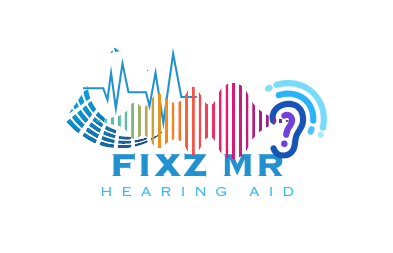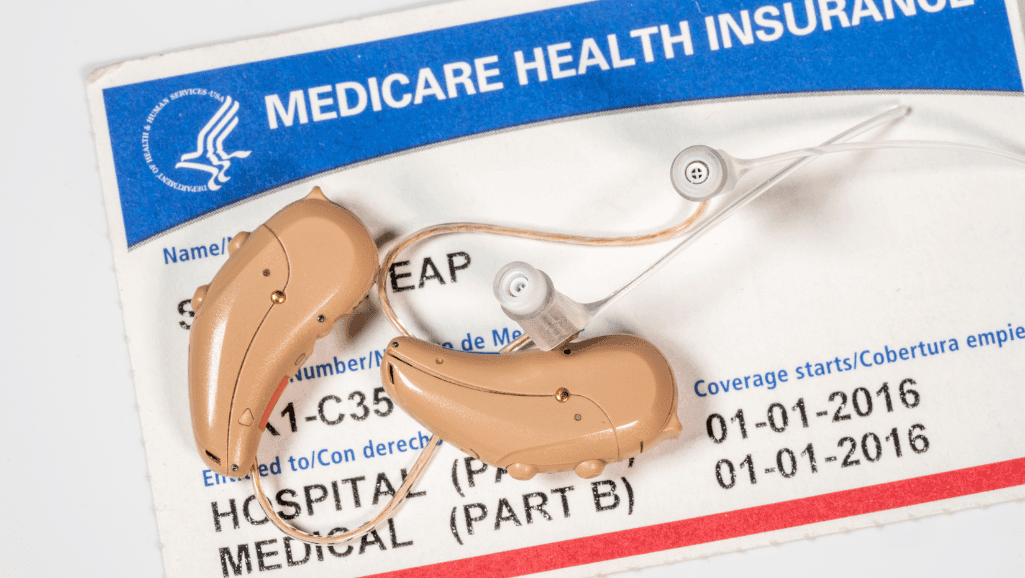Understanding what Medicare does and doesn’t cover for hearing aids is crucial. Medicare by itself won’t help with the costs of hearing aids or the tests needed to fit them properly. This means you’ll have to pay for these things out of your own pocket. The typical price for a pair of hearing aids is around $4,600. That’s a big expense for many people. Although some laws have tried to change this, they haven’t gone through yet.
So, if you’re on Medicare, you may have to look at other ways to cover these costs. This could mean checking out different types of health plans or paying for the hearing aids yourself. It’s important to know your options and be ready for these expenses Medicare Hearing Aids Coverage.
Key Takeaways
- Original Medicare does not cover hearing aids or exams for fitting them.
- Beneficiaries are fully responsible for the cost of hearing aids, averaging $4,600 per pair.
- Efforts to include hearing aid coverage in Medicare have not succeeded.
- Alternative options like Medicare Advantage plans and private insurance may provide some coverage.
- Consumers must explore funding options or discount programs to manage costs.
Understanding Medicare and Its Parts
Medicare is made up of different parts, each tackling various healthcare parts. Original Medicare (Parts A and B) follow clear rules. On the other hand, Medicare Advantage, or Part C, gives more benefits through private plans. Let’s dive into what each part does:
Medicare Part A: Hospital Insurance
Part A handles hospital stays, skilled nursing care, hospice, and some home care. It doesn’t pay for hearing aids or their fitting exams. So, people need to look at other options for that.
Medicare Part B: Medical Insurance
Part B includes doctor visits and outpatient services. It also covers some preventative care. It pays for part of hearing and balance tests but not for hearing aids (Read more on Medicare coverage for hearing aids).
Medicare Part C: Medicare Advantage
Medicare Advantage (Part C) replaces Original Medicare. It combines Parts A and B with other benefits. Some plans offer dental, vision, and hearing aid coverage. The right Medicare Advantage plan can reduce hearing aid costs. It gives an alternative for broader healthcare coverage.
Medicare Part D: Prescription Drug Coverage
Part D is for prescription drugs. It’s provided by private Medicare-approved companies. But, it does not include hearing aids. For hearing aids, you should check Medicare Advantage or add-on plans.
Knowing Medicare’s parts helps with healthcare choices. Especially important with expensive items like hearing aids. Medicare Advantage offers extra help, giving more than Original Medicare.
Medicare Hearing Aids Coverage
Understanding Medicare hearing aid coverage guidelines is key for many. Original Medicare, made up of Part A and B, doesn’t cover hearing aids or the needed exams for fitting them. This can be tough for people needing help, as hearing aids cost about $4,600 per pair or $2,700 for one ear.
But, there’s a different story for those with Medicare Advantage plans. These plans, available from private companies, can cover hearing aids and more. It’s important to check each plan’s specific guidelines. Some plans might cover part of the cost or offer discounts, helping lower your expenses.
Role of Medicare Advantage Plans
Medicare Advantage plans (Part C) differ from Original Medicare by possibly covering hearing aids. Their benefits can vary, so knowing each plan’s details is essential. By understanding what’s covered, you can save a lot on hearing aid costs.
Exclusions Under Original Medicare
Original Medicare doesn’t help with hearing aids or their fitting exams. This rule has been in place since 1965, even with efforts to change it, like the Seniors Have Eyes, Ears, and Teeth Act in 2019. So, learning about Medicare Advantage’s hearing aid reimbursement is crucial for those looking for support.
| Hearing Aid Provider | Price Range (per pair) | Financing Options |
|---|---|---|
| MDHearing | $1,195–$1,995 | Available |
| Audien | $99–$249 | Not Available |
| Audicus | $1,850–$2,950 | Available |
| Jabra Enhance | $299–$699 | Available |
| Eargo | $1,398–$2,998 | Available |
Eligibility Criteria for Hearing Aids Coverage
Understanding the rules for hearing aids and Medicare is key. This is especially true for those looking into Medicare Advantage plans. First, you must check if you fit the bill for Medicare itself. This tells you if you can get help from this federal health program.
General Eligibility for Medicare
To get Medicare, you need to be 65 or older. But there are other ways to qualify, like having end-stage renal disease or certain disabilities. After making sure you’re eligible, you can look into what hearing aid benefits might be available with Medicare Advantage plans.
Specific Requirements for Hearing Aid Benefits
The rules for getting hearing aids with Medicare Advantage can change. It depends on the plan and the company behind it. While Original Medicare usually doesn’t pay for hearing aids, certain Medicare Advantage plans might. It’s crucial to look closely at your plan. This way, you understand what help you may get for hearing aids and their services.
Hearing aids are expensive, costing around $4,600 a pair or $2,700 for one. So, it’s really important to know what your Medicare plan offers. You need to check all the options from various companies. This is to find the right coverage for your hearing needs.
To wrap up, getting into Medicare itself might be simple. But, getting to the bottom of hearing aids and what Medicare covers can be tricky. That’s why it’s smart to thoroughly check your plan. Knowing what it covers can really help with your hearing expenses. Plus, it helps with making the most out of potential Medicare benefits for hearing aids.
Costs Associated with Medicare Hearing Aids
Hearing aids cost around $4,600 for a pair. It’s about $2,700 for just one ear. Original Medicare doesn’t help with these costs. Because of this, people have to pay a lot on their own for hearing aids. Price is a big deal when people look to buy them.
Some states help with hearing aid costs through Medicaid for adults. Unfortunately, 20 out of 50 states don’t give this help. In the states that do offer help, the rules and help given are different. They always cover hearing aids for kids and young adults up to age 21. But, many older adults don’t get this kind of help.
Hearing aids cost can be from $900 to $6,000 or more. The price depends on what features and care you need. Companies like Jabra Enhance, Audien, Eargo, MDHearing, and Audicus have options for all budgets. For example, you can get Jabra hearing aids for $799. Or, you can choose more advanced models that cost over $8,000 for a pair.
Medicare Advantage plans can help more than Original Medicare. They often cover hearing aids and services. People looking to lower their Medicare hearing aid costs should check out additional insurance, charity help, and special discount plans. These can offer cheaper hearing aids or financial support.
More affordable options like OTC hearing aids are becoming available. The Jabra Enhance Select 50R costs less than $1,000 for a pair. These are good for people who don’t need custom devices for their hearing issues.
Diagnostic Hearing Exams and Medicare Coverage
It’s important to know what diagnostic hearing exams Medicare covers. Hearing loss is common, affecting many Americans over 65. Even though Medicare doesn’t cover hearing aids directly, it does pay for some exams.
Coverage under Medicare Part B
Medicare Part B covers exams for hearing and balance. This is done if a doctor orders the test to see if you need medical care. You will need to pay 20% of the cost after you meet the deductible. These tests can find health issues early, which is good because hearing loss is linked to falls, dementia, and depression.
Procedures Covered and Costs Involved
| Type of Coverage | Details |
|---|---|
| Services Included | Diagnostic hearing exams, balance exams ordered by a doctor |
| Beneficiary Cost | 20% of Medicare-approved amount after Part B deductible |
| Potential Additional Costs | Additional fees in hospital outpatient settings |
Hearing aids can be very expensive, from $900 to $6,000 or more. The average price is $2,363. Unfortunately, Medicare doesn’t help pay for most hearing aids. But, it does cover some special devices when they’re medically necessary.
While some hearing exams are paid for, buying hearing aids might still be completely your responsibility. This means you may need to look for other ways to help with the costs.
Exploring Medicare Advantage Plans for Hearing Aids
Hearing aids are costly, with an average price of $4,600 per pair. It’s smart to look into the coverage you might have. Medicare Advantage plans are different from Original Medicare. They might help cover the costs related to hearing aids and exams through various benefits.
In 2021, almost all Medicare Advantage plans included some hearing aid coverage. But, the amount covered varied a lot, with most plans limiting around $960 per year. How often you can get new hearing aids also changes from plan to plan. It can be once a year, or maybe once every two or three years.
If you’re in a hearing aids Medicare Advantage plan, check with your provider. You need to know about your specific benefits. This can help you understand how much you might need to pay additionally. It also lets you see how often you can replace your hearing aids and what services are available.
| Plan Type | Hearing Aid Coverage | Annual Limit | Frequency Allowed |
|---|---|---|---|
| Medicare Advantage Plan A | Yes | $500 | Once per year |
| Medicare Advantage Plan B | Yes | $1,500 | Once every 2 years |
| Medicare Advantage Plan C | Yes | $2,000 | Once every 3 years |
It’s wise to research and compare your Medicare Advantage options for hearing aids. By doing so, you might save a lot of money. Plus, it ensures you can get the hearing services you need. When choosing a plan, remember that specific coverage details matter a lot. Pick the plan that suits you best.
Medicare Supplemental Insurance and Hearing Aids
Hearing loss is common in older adults. Knowing how Medicare supplemental insurance can help with hearing aid costs is key. Although Original Medicare doesn’t pay for hearing aids, some Medigap plans might help with the expense.
Understanding Medigap Plans
Medigap plans, or Medicare Supplemental Insurance, help manage extra costs not covered by Original Medicare. They take care of things like copayments and deductibles. It’s important to realize that not all Medigap plans include hearing aid benefits.
For instance, Medigap plans often help with other expenses but not hearing aids. You may need to look into more insurance options or other ways to get coverage.
Additional Benefits and Coverage Options
Looking for help with hearing aids through Medigap means checking what the plans offer. Some things you might find are:
- Flexible Coverage: Certain Medigap plans offer flexibility, letting you include extra benefits plus separate hearing aid plans.
- Private Health Insurance: Private health insurance can provide broad coverage, including for hearing aids.
- Discount Programs: You could also use discount programs and charities to make hearing aids more affordable.
| Age Group | Percentage with Hearing Loss |
|---|---|
| Over 12 Years Old | 23% |
| 70 and Older | 75% |
| 65–74 | 33.3% |
| Over 75 | 50% |
These numbers show just how much hearing aids are needed by older folks. Learning about the benefits from Medigap and checking out other help can make a big difference. It can lower the cost and make getting hearing aids easier.
Alternative Options for Hearing Aids Coverage
If you’re looking at how to cover hearing aid costs, there are more options besides Medicare Advantage and Medigap plans. There are other Medicare hearing aid coverage alternatives. For example, some private health insurance plans help with the cost of hearing aids.
Another way to save money is through Flexible Spending Accounts (FSAs) and Health Savings Accounts (HSAs). These options let you put aside money before taxes for medical needs like hearing aids. Veterans might find help through the VA, which sometimes covers the cost of hearing aids. Also, some state Medicaid programs offer help, but only to those who meet certain criteria.
Since October 2022, Over-The-Counter (OTC) hearing aids have become available. They can cost between $299 and $2,500 a pair, which is lower than the usual $4,600 for prescription hearing aids. The FDA says OTC hearing aids are okay for adults 18 and over with mild to moderate hearing loss.
Charities also support people looking for cheaper devices or financial aid to get hearing aids. This is key because hearing loss affects about 38 million Americans. It can lead to issues like falls, depression, and dementia.
It’s wise to be aware of the rules in each state. Only five states make health insurance cover hearing aids for adults. But 20 states say health plans must cover children’s hearing aids. So, knowing the local health laws helps find more Medicare hearing aid coverage alternatives.
Don’t forget that Tricare and some other insurance plans might not cover hearing aids for military members and their families. Looking closely at different options is very important for these families.
Below is a comparison between prescription hearing aids and OTC hearing aids:
| Aspect | Prescription Hearing Aids | OTC Hearing Aids |
|---|---|---|
| Price Range | $4,600 per pair on average | $299 to $2,500 per pair |
| Availability | Requires a professional fitting and prescription | Available without prescription |
| Suitability | For all types of hearing loss | For mild to moderate hearing loss |
| Insurance Coverage | May be covered by some private health insurance plans and Medicare Advantage | Typically not covered |
Conclusion
Original Medicare started in 1965 without hearing aids coverage. But, there are other ways to get help. For example, looking into Medicare Advantage plans could matter a lot. Many of them include benefits for hearing aids. Being an AARP member can mean big discounts too. So, it’s smart to use all your available resources.
Hearing aids are very costly, with each one averaging $2,363. Sadly, nearly 50% of those who need them lack insurance. This is a big problem since 80% of these people can’t afford hearing aids. But, there are ways to cope, like through Medigap plans and state Medicaid. These can lower the costs significantly.
Doing your homework on insurance and other support is crucial. For instance, the US Department of Veteran Affairs shows big savings are possible. The key is to use all the options available. This way, you can find the best way to cover the cost of hearing aids.









